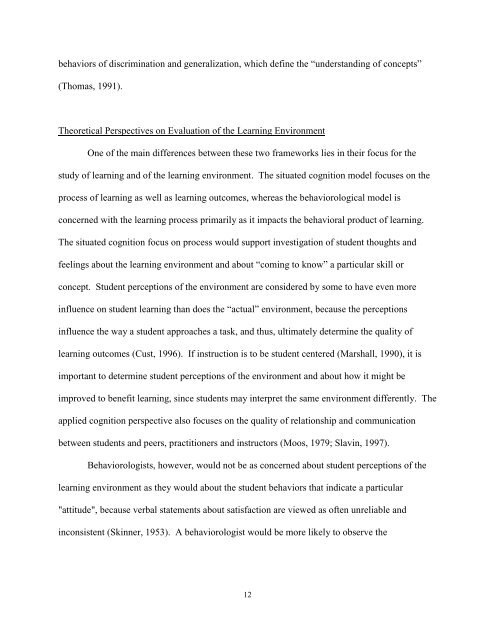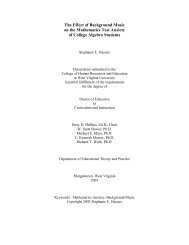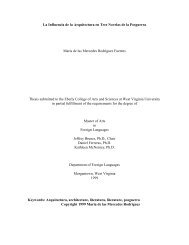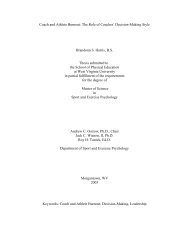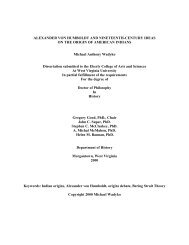STUDENT EVALUATION OF CLINICAL EDUCATION ENVIRONMENT
STUDENT EVALUATION OF CLINICAL EDUCATION ENVIRONMENT
STUDENT EVALUATION OF CLINICAL EDUCATION ENVIRONMENT
Create successful ePaper yourself
Turn your PDF publications into a flip-book with our unique Google optimized e-Paper software.
ehaviors of discrimination and generalization, which define the “understanding of concepts”<br />
(Thomas, 1991).<br />
Theoretical Perspectives on Evaluation of the Learning Environment<br />
One of the main differences between these two frameworks lies in their focus for the<br />
study of learning and of the learning environment. The situated cognition model focuses on the<br />
process of learning as well as learning outcomes, whereas the behaviorological model is<br />
concerned with the learning process primarily as it impacts the behavioral product of learning.<br />
The situated cognition focus on process would support investigation of student thoughts and<br />
feelings about the learning environment and about “coming to know” a particular skill or<br />
concept. Student perceptions of the environment are considered by some to have even more<br />
influence on student learning than does the “actual” environment, because the perceptions<br />
influence the way a student approaches a task, and thus, ultimately determine the quality of<br />
learning outcomes (Cust, 1996). If instruction is to be student centered (Marshall, 1990), it is<br />
important to determine student perceptions of the environment and about how it might be<br />
improved to benefit learning, since students may interpret the same environment differently. The<br />
applied cognition perspective also focuses on the quality of relationship and communication<br />
between students and peers, practitioners and instructors (Moos, 1979; Slavin, 1997).<br />
Behaviorologists, however, would not be as concerned about student perceptions of the<br />
learning environment as they would about the student behaviors that indicate a particular<br />
"attitude", because verbal statements about satisfaction are viewed as often unreliable and<br />
inconsistent (Skinner, 1953). A behaviorologist would be more likely to observe the<br />
12


